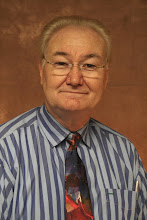Good morning on this Saturday, October 2nd. Seventh Day Adventist Church followers have mailed out a large number of booklets and literally blanketed some areas of the Quad Cities with their materials. Numbers of our people have received them in the mail. Obviously their intent is to try to convert people to their church. Concerning the questions regarding worshipping on Saturday instead of Sunday as most of Christianity does, here are some answers:
(1) It is true that the Sabbath is Saturday, the seventh day and the day God rested after creation.
(2) The Sabbath according to Jewish reckoning begins at sundown on Friday evening and continues until sundown of Saturday evening.
(3) In the Old Testament the Jews observed the Sabbath for worship and rest.
(4) One of the 10 Commandments concerns the Sabbath, “Remember the Sabbath Day and keep it holy.”
(5) There were ceremonial Sabbaths (Holy Days) which were also observed besides the seventh day Sabbath by the Jews.
(6) Sunday, the first day of the week, is called the Lord’s Day in Scripture (Matt. 28:1; Mark 16:1-2).
(7) Why then does most of Christianity worship on Sunday, the Lord’s Day, instead of Saturday, the Sabbath?
(8) Jesus was raised from the dead sometime after Saturday evening and appeared to the women at dawn on Sunday, the Lord’s Day; hence the reason why many have sunrise services early on Easter morning which is always observed on Sunday (Mark 16:9; John 20:1, 19).
(9) In the New Testament the early church worshipped on Sunday, the Lord’s Day (Acts 20:7).
(10) The Apostle John who wrote the gospel which bears his name, the epistles of 1st, 2nd , and 3rd John, and the final book of the Bible, the book of Revelation records that he worshipped on the 1st day of the week while on the Isle of Patmos (where he wrote the book of Revelation while in exile) (Revelation 1:9-10).
(11) Paul commands Christians to give by “laying in store according as the Lord has prospered us on the 1st day of the week (Lord’s Day)” (1 Corinthians 16:1-2)
(12) Church history shows us that the church met and worshipped on the Lord’s Day, Sunday (See church history textbooks).
(13) Of the 10 Commandments found in the Old Testament, Nine are reiterated in the New Testament but the only one not reiterated is “Remember the Sabbath Day and keep it holy.”
(14) The book of Colossians tells New Testament Christians, “Let no man therefore judge you in meat, or in drink, or in respect of a holy-day, or of the new moon, or of the Sabbath Days: Which are the shadow of things to come; but the body is of Christ” (Colossians 2:16-17)
(15) We are not to let others judge us in regard to their Old Testament rules and rituals because according to the book of Hebrews and Galatians, the things including the Old Testament sacrifices and rituals were foreshadows of Christ and when Christ came He instituted a New Covenant of Grace rather than law. The Old Testament ceremonial laws were called in Galatians a “schoolmaster” to teach us about the coming of Christ, but when Christ died and was raised again graduation occurred and the need for the school master was over. We are consequently no longer under the ceremonial law of the Old Testament (observing the Day of Atonement, Passover, etc. or practicing Old Testament rituals.

